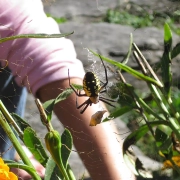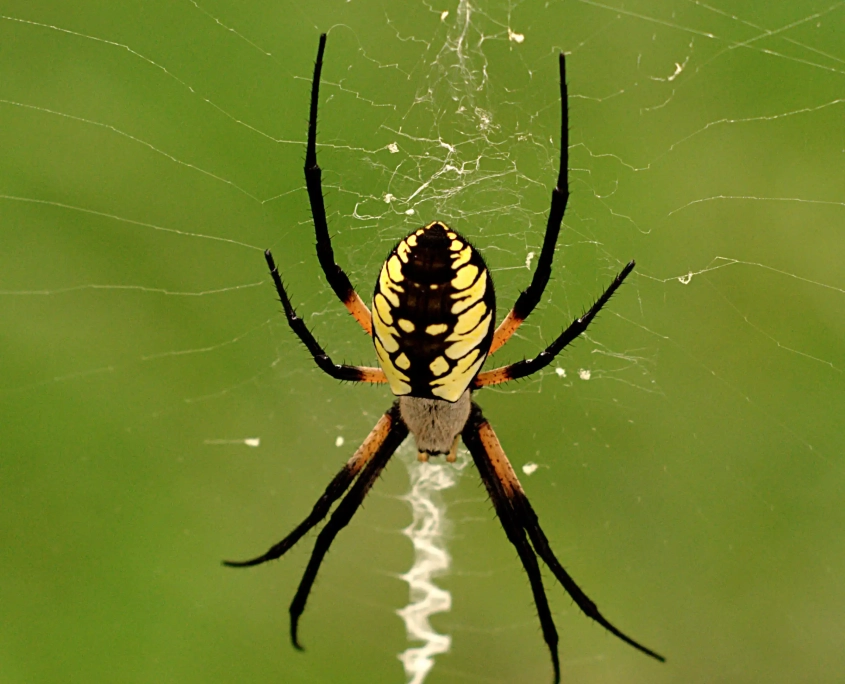Garden Spider
There are many different types of garden spiders, most of the time, these spiders are found in the lawn or garden but can be found within the home as well.
These spiders include the following: meshweb spiders, crab spiders, running crab spiders, wolf spiders, nursery web spiders, comb-footed spiders, stretch spiders, orb-web spiders, sheet web spiders, dwarf spiders, sac spiders, and buzzing spiders. Most garden spiders are orb-weaving, which means they are known for their orb-looking webs.
The most prominent time for a garden spider is during the fall. The main difference between the variations of the garden spider mostly has to do with their appearance, and there are, in fact, quite a few similarities.
Colorful Garden Spiders
 The garden spiders weave large flat webs suspended between plants, across paths, and along window and door frames. They are generally found outdoors, although they may find their way indoors as fall progresses to winter. Some garden spiders prefer wooded and shrubby areas, while others prefer sunny areas around houses and tall grasses. The Garden spider is actually most noted for spinning webs.
The garden spiders weave large flat webs suspended between plants, across paths, and along window and door frames. They are generally found outdoors, although they may find their way indoors as fall progresses to winter. Some garden spiders prefer wooded and shrubby areas, while others prefer sunny areas around houses and tall grasses. The Garden spider is actually most noted for spinning webs.
As listed above, there are many different types of garden spiders; however, two common species are the European garden spider and the Argiope garden spider. The European garden spider is recognized by its large tan and gray body with mottled tan or brown markings across the back. It is also highlighted by five large white dots forming a cross-like shape.
The Argiope usually is yellow or black with two rows of three white spots along its back. The Argiope also spins its web with a very unusual zigzag pattern in the center of it.
The Final Act!
The female garden spider will sometimes eat the male spider after mating, but not usually. Instead, the male garden spiders typically mate with several females and often die from starvation and exhaustion since they spend little time feeding while searching for females.
The garden spiders’ diet consists of whatever they can catch in their webs. The garden spider will eject poison into their prey and eat almost all of it, eventually sucking out the liquefied contents of their prey’s body.
The Garden Spider is not aggressive, and they are not poisonous to humans. Because they are not aggressive spiders, one would rarely bite a human. In some circumstances, if they feel threatened or are pressed against human skin, they might bite a human on that rare occasion.
Even though garden spiders are not poisonous, it is still important to seek medical attention, just in case the species of the spider is not identifiable.
